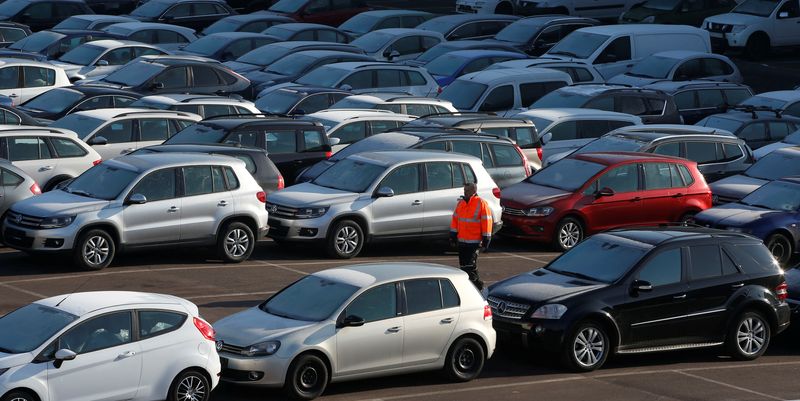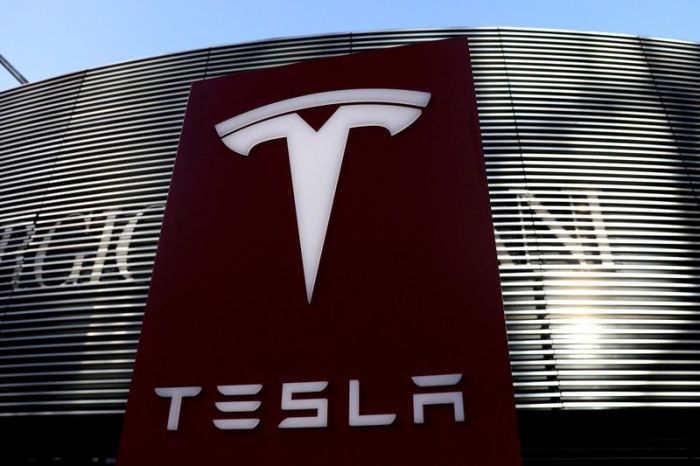BERLIN (Reuters) -Germany must focus on existing climate goals and invest further in infrastructure for electric vehicles to protect its position in the global auto industry amid growing competition, including from Chinese players, its auto assocation VDA said on Wednesday.
“We don’t need more and more climate goals. The current ones are ambitious,” VDA president Hildegard Mueller told a news conference.
“The transformation requires higher speed and concrete policy measures. We as an industry can also be faster in certain areas.”
A report by the Center of Automotive Management assessing which automakers produced the most innovative technologies placed German carmakers Volkswagen, Mercedes-Benz and BMW at the top of the rankings alongside Tesla but three Chinese companies were also in the top ten for the first time – BYD, Great Wall and Geely.
Building out infrastructure to support a rising number of electric vehicles on roads in Germany was key to protecting its position, the VDA said, pointing to a lack of 5G networks and charging stations among other weaknesses.
At its current pace of building out new charging stations, just 160,000 would be installed by 2030, the association warned – a fraction of the country’s stated goal of one million.
It also needed to form partnerships with energy producers and raw material producers in other countries to make enough clean energy to power electric vehicles, the VDA said, predicting that domestic renewable energy production would not be sufficient.
The association expects the domestic car market to grow by 7% in 2022 to 2.8 million new vehicles, an improvement on last year’s historic lows but still below pre-pandemic levels.
Globally, it predicted 4% growth in the market this year, with a 5% increase in Europe where recovery from the pandemic has been slower than the United States or China.
The ongoing chip shortage would likely continue to plague the auto industry until 2023, VDA president Hildegard Mueller said in a press conference, though there could be some slight relief in the second half of this year.
“Europe will not achieve independence on chips, but securing existing supply chains is of central importance and posessing a strategic market share in the global market could boost our negotiating position in the case of future scarcity,” she added.
(Reporting by Victoria Waldersee, Jan Schwartz; editing by Maria Sheahan, Jason Neely and Angus MacSwan)
























